Premium Only Content
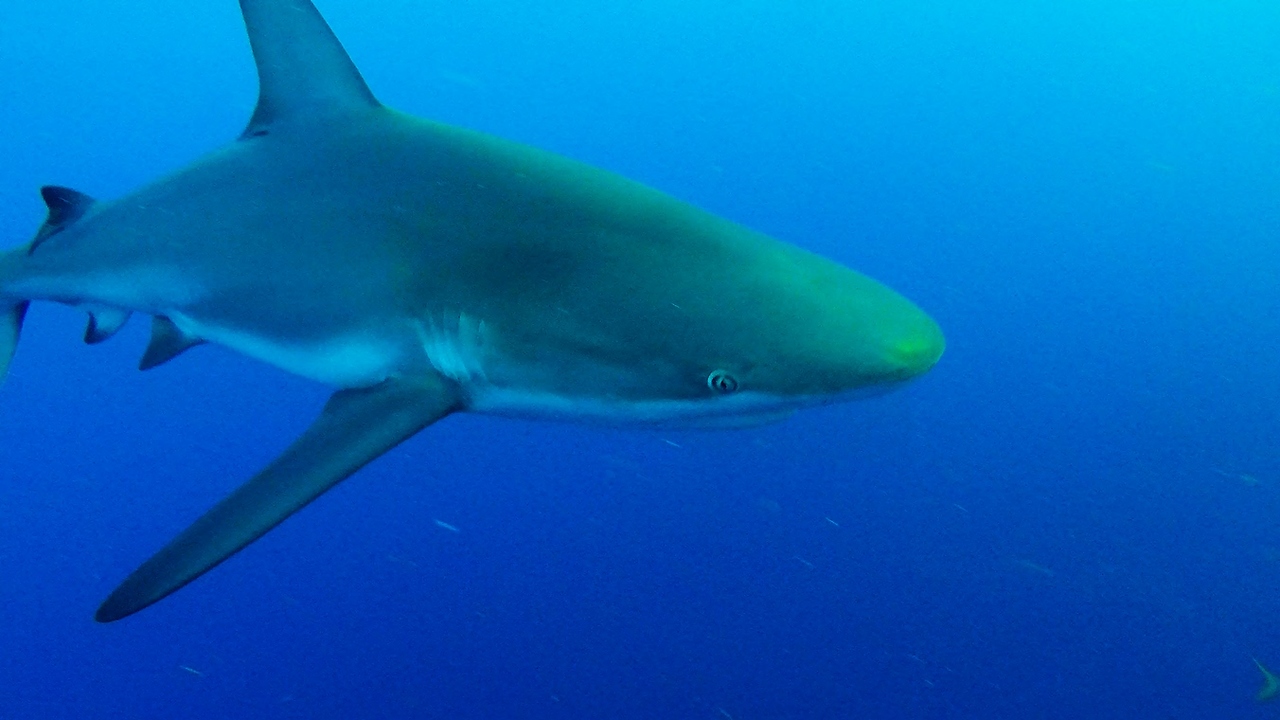
Aggressive sharks bump and circle divers on their way to the surface
Divers enjoyed an ordinary dive in Belize, off the island of San Pedro, until the sudden and unexpected appearance of eight large Caribbean Reef Sharks. These ten foot long beasts are new to the waters surrounding the island, having just appeared in the last 2-3 years, possibly due to a slight increase in water temperature.
Divers were expecting to see an assortment of fish, turtles, and nurse sharks, a common species that is completely docile and harmless to humans. They did not expect a close encounter with the reef sharks.
Divers had been underwater for approximately 50 minutes and they were making their ascent. A three minute safety stop was required, a standard procedure where scuba divers are suspended at 20 feet to expel the built up nitrogen gas from their bodies. People on a nearby boat had been chumming the water in the area for Nurse Sharks. Chunks of fish had been thrown in from the boat to attract them. The practice of chumming for reef sharks is inadvisable, however, and can be dangerous. Caribbean Reef Sharks have been known to become aggressive in the presence of food and can be dangerous to humans in the feeding area. This is obviously a risk created by people, and not an indication of sharks being dangerous in a natural situation. Normally, these sharks are shy and avoid close contact with humans.
These sharks began circling divers, showing intense curiosity. Initially, they kept their distance and swam around and below the divers. But the sharks began moving closer and exhibiting behavior that was borderline aggressive. Circling closer and changing direction rapidly below signal a change in the sharks' mood. One shark can actually be seen coming straight up at the diver and bumping him with its snout. The nose of the shark briefly came into contact with the diver's groin. This behavior is more than mere curiosity and may suggest that the shark is trying to test the diver to see what his reaction will be prior to biting.
The divers recognized the change in the behavior of the sharks and they finished their safety stop and got out of the water.
Despite the fact that this was unnerving, such a close encounter with a full grown Caribbean Reef Shark was thrilling and beautiful, allowing for some spectacular footage as a result. These sharks a wonder to behold: full of grace and obvious power. Top predators, a full grown Caribbean Reef Shark has approximately 12 rows of formidable teeth and it has no reason to fear any other ocean dweller except Bull Sharks and Great Whites. But even those predators don't often attack such large reef sharks.
Chumming the water for tourists' enjoyment has become very controversial. While there is no evidence to suggest that it has increased the number of human attacks by sharks, it is thought to increase the likelihood. But some people argue that the close encounters and the entire ecotourism that has arisen around this practice has been the driving force behind many conservation efforts. The value of the sharks rises dramatically when they represent more money alive than they do dead. The education and the popularity of the sharks has contributed to the desire to protect them.
Many countries are moving away from using sharks as a food source, or banning the practice altogether. Shark populations are declining worldwide and losing the species would be disaster for the oceans and for humans.
-
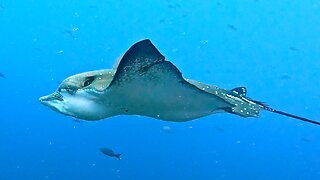 1:34
1:34
WildCreatures
28 days ago $7.36 earnedMajestic Spotted Eagle Rays Fly Past Scuba Diver in the Galapagos Islands
26.8K9 -
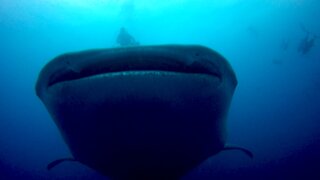 2:16
2:16
WildCreatures
4 years ago $20.05 earnedGigantic whale sharks cruise right through group of scuba divers
39.5K203 -
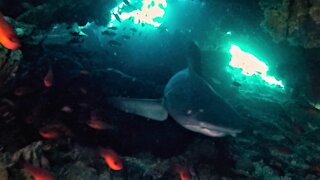 0:45
0:45
GalapagosGuys
4 years ago $6.33 earnedIntimidating sharks block scuba divers' exit from underwater cave
3.3K11 -
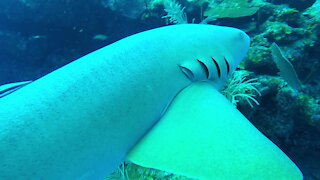 1:03
1:03
BigSexysPlayground
5 years ago $2.47 earnedBeautiful sharks follow and bump scuba divers for a thrilling dive
4.98K1 -
 1:51
1:51
WildCreatures
5 years ago $16.84 earnedSharks surround scuba divers during thrilling underwater encounter
8.3K13 -
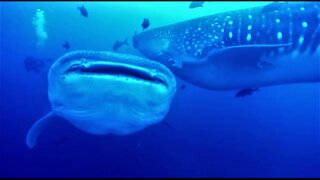 1:03
1:03
GalapagosGuys
5 years ago $6.90 earnedScuba divers watch in awe as two whale sharks collide
3.69K4 -
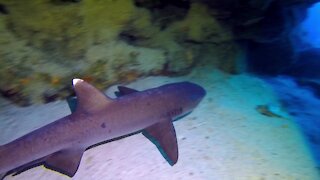 1:05
1:05
GalapagosGuys
4 years ago $18.26 earnedScuba divers find sleeping sharks and sea turtles in mysterious cave
2.16K2 -
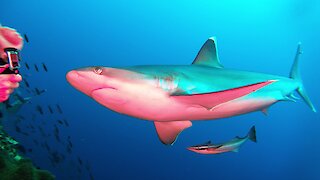 0:54
0:54
WildCreatures
5 years ago $12.32 earnedSharks cause scuba divers to nearly wet their wet suits
2.51K4 -
 0:52
0:52
BigSexysPlayground
5 years ago $2.15 earnedSharks become aggressive over speared lionfish in tube
2.71K -
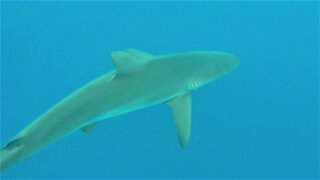 1:28
1:28
WildCreatures
5 years ago $14.79 earnedScuba divers hop off the boat to meet dolphins, meet sharks instead
9.77K20